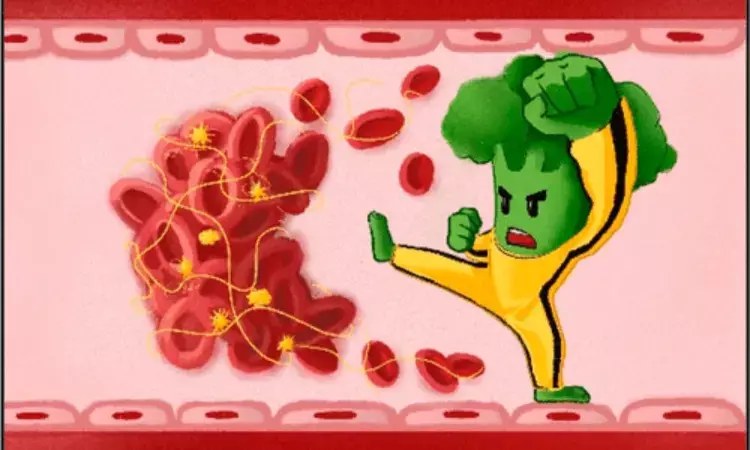- Home
- Medical news & Guidelines
- Anesthesiology
- Cardiology and CTVS
- Critical Care
- Dentistry
- Dermatology
- Diabetes and Endocrinology
- ENT
- Gastroenterology
- Medicine
- Nephrology
- Neurology
- Obstretics-Gynaecology
- Oncology
- Ophthalmology
- Orthopaedics
- Pediatrics-Neonatology
- Psychiatry
- Pulmonology
- Radiology
- Surgery
- Urology
- Laboratory Medicine
- Diet
- Nursing
- Paramedical
- Physiotherapy
- Health news
- Fact Check
- Bone Health Fact Check
- Brain Health Fact Check
- Cancer Related Fact Check
- Child Care Fact Check
- Dental and oral health fact check
- Diabetes and metabolic health fact check
- Diet and Nutrition Fact Check
- Eye and ENT Care Fact Check
- Fitness fact check
- Gut health fact check
- Heart health fact check
- Kidney health fact check
- Medical education fact check
- Men's health fact check
- Respiratory fact check
- Skin and hair care fact check
- Vaccine and Immunization fact check
- Women's health fact check
- AYUSH
- State News
- Andaman and Nicobar Islands
- Andhra Pradesh
- Arunachal Pradesh
- Assam
- Bihar
- Chandigarh
- Chattisgarh
- Dadra and Nagar Haveli
- Daman and Diu
- Delhi
- Goa
- Gujarat
- Haryana
- Himachal Pradesh
- Jammu & Kashmir
- Jharkhand
- Karnataka
- Kerala
- Ladakh
- Lakshadweep
- Madhya Pradesh
- Maharashtra
- Manipur
- Meghalaya
- Mizoram
- Nagaland
- Odisha
- Puducherry
- Punjab
- Rajasthan
- Sikkim
- Tamil Nadu
- Telangana
- Tripura
- Uttar Pradesh
- Uttrakhand
- West Bengal
- Medical Education
- Industry
Sulforaphane found in broccoli may protect against stroke: Study

Australia: Researchers from the Heart Research Institute in New South Wales, Australia, have discovered that a natural chemical found in broccoli may help prevent and treat stroke.
The study was published in the American Chemical Society’s journal ACS Central Science on January 29, 2024.
"Sulforaphane (SFN), found in cruciferous vegetables such as broccoli, offers irreversible, selective antiplatelet effects, synergizing with vascular recanalization therapies without raising bleeding risks," the researchers wrote.
These results provide new insights into the molecular pharmacology studies of naturally occurring isothiocyanates as novel antithrombotic leads, specifically in combination with approved therapies.
Around the world, about 15 million people every year experience a stroke, a cardiovascular condition that occurs when blood and oxygen are unable to get to the brain. Depending on the stroke type, the main treatment is either using medications to break down blood clots keeping blood from flowing to the brain, or stopping blood from leaking into the brain.
How quickly the therapy is administered largely impacts a person's recovery after a stroke. Scientists estimate that only about 10% of stroke survivors make a full recovery, with others living with impairment or disability.
A large variety of dietary phytochemicals has been shown to improve stroke outcomes and thrombosis in preclinical studies. Many of these compounds feature electrophilic functionalities that potentially undergo covalent addition to the sulfhydryl side chain of cysteine residues within proteins. However, no clarity exists on the impact of such covalent modifications on platelet activity and function.
Against the above background, Ivy A. Guan, School of Chemistry, Faculty of Science, The University of Sydney, Sydney, New South Wales, Australia, and colleagues explored the irreversible engagement of 23 electrophilic phytochemicals with platelets, unveiling the unique antiplatelet selectivity of sulforaphane.
The following are the key features of sulforaphane that could protect against stroke:
- SFN impairs platelet responses to adenosine diphosphate (ADP) and a thromboxane A2 receptor agonist while not impacting thrombin and collagen-related peptide activation.
- It also substantially reduces platelet thrombus formation under arterial flow conditions.
- Using an alkyne-integrated probe, protein disulfide isomerase A6 (PDIA6) was identified as a rapid kinetic responder to SFN.
- Mechanistic profiling studies revealed SFN’s nuanced modulation of PDIA6 activity and substrate specificity.
- In an electrolytic injury model of thrombosis, SFN enhanced the thrombolytic activity of recombinant tissue plasminogen activator (rtPA) without increasing blood loss.
The findings together with previous reports on SFN’s roles in suppressing oxidative stress and neuroinflammation provide the impetus to investigate the molecular mechanisms underlying dietary antiplatelets to discover novel preventive and therapeutic mechanisms for thrombosis and strokes without significant bleeding risks.
"Our results catalyze further investigations into the therapeutic and preventive mechanisms of dietary antiplatelets, aiming to enhance the clot-busting power of rtPA, currently the only approved therapeutic for stroke recanalization with significant limitations," the research team concluded.
Reference:
ACS Cent. Sci. 2024, 10, 2, 344–357. Publication Date: January 29, 2024. https://doi.org/10.1021/acscentsci.3c00822.
Dr Kamal Kant Kohli-MBBS, DTCD- a chest specialist with more than 30 years of practice and a flair for writing clinical articles, Dr Kamal Kant Kohli joined Medical Dialogues as a Chief Editor of Medical News. Besides writing articles, as an editor, he proofreads and verifies all the medical content published on Medical Dialogues including those coming from journals, studies,medical conferences,guidelines etc. Email: drkohli@medicaldialogues.in. Contact no. 011-43720751


